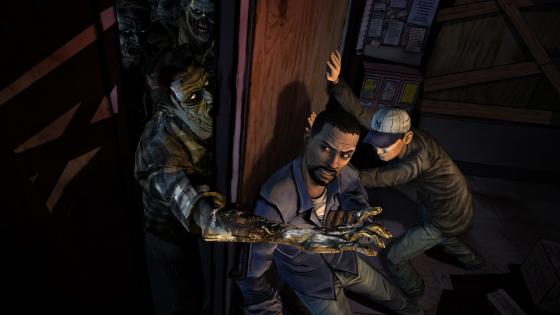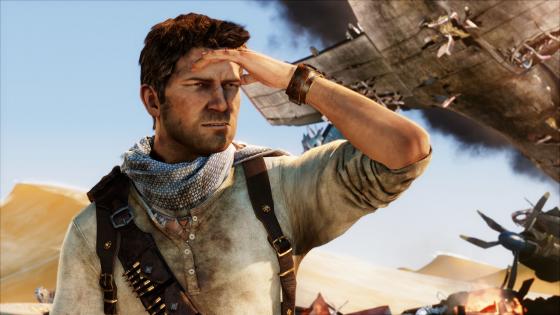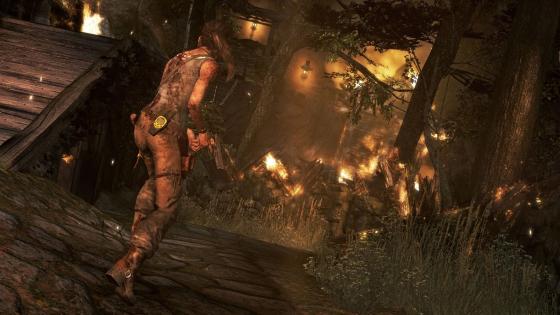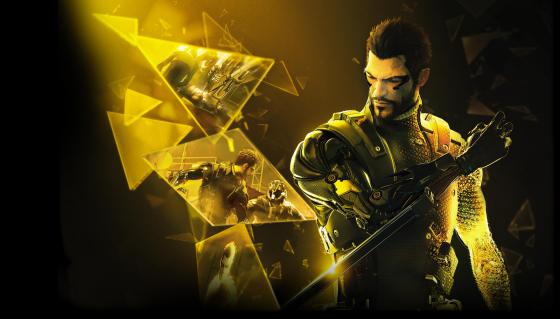Mechanical Evolution
The year 2012 introduced our medium to what was, arguably, a new genre - presenting us with TellTale’s episodic opus, The Walking Dead. You could call it a point and click puzzler, even though it really only had a handful of puzzles, and you’d be wrong. You could also call it a drawn out Quick Time Event, where direct control of the character was mainly only handled outside of the action sequences, and you would be equally wrong.
The Walking Dead was an interactive story, more than anything - with the true meat of the game coming not from shooting, or using a rope on a magnet, but from split-second decision making inside the branching narrative.
It wasn’t a ‘video game’ in a traditional sense - and that isn’t a criticism - with the ‘game’ part coming second to the branching story. Chances are, if you finished the title, it wasn’t because you were enjoying its systems, it was because you wanted to see what happened next in the twisting, and genuinely shocking plot.

Usually, in games, story comes second to design, and in most cases the story is wrapped around a smorgasbord of set-pieces and men to kill. The Walking Dead and Heavy Rain are two good examples of where this isn’t the case. Even Deadly Premonition forced combat down our throats, when really, it was just padding for the involving narrative.
You only have to look at the Uncharted series to see what I mean. Set-piece after set-piece, loosely bound together by a matinee-like trail of events that only exist to justify the explosive eye-candy. Sure, the characters are well written, and acted, but can you actually remember everything that happened throughout the three-game plot?
When I try to remember, it’s like trying to remember a drunken night out: flashes of nazi’s (or was that Indiana Jones?), men in furry suits, artefacts and love interests. What I really remember when I think back, are the set-pieces: hanging out the back of a cargo plane, that train sequence, a U-boat on a waterfall and walking in the desert.

Which is more important? Sure, there is room for Rambo, as well as Schindler’s List in film - and it should be the same for our medium - but is it too much to ask that we eventually manage to find a comfortable spot between the two extremes?
One game that attempted this was the recent Tomb Raider reboot, and you can see what I thought in my review. It weaved a decent enough yarn, but the dissonance that comes from the short gap between Lara killing her first victim under the threat of sexual assault and death, and later stealth-killing everyone she sees with a pickaxe, is a bit too much.
Sure, I still enjoyed the game, but this kind of disconnect comes from a game trying to be something it’s not.
Do you remember the first Tomb Raider? There was nary a human to be seen, and your main enemies were the animals that infested the tombs, the deadly traps and breathtaking leaps in between. The recent reboot could have used a similar tactic, and beefed up the exploration, whilst holding back a bit on the shooty stuff.

Guns sell. This is the underlying issue, and don’t get me wrong, I like shooting people in games - I’m not mental, honest - but it would be nice to see more risks being taken in the industry. You don’t even have to omit guns entirely, but you could take a Deus Ex/Dishonored approach to the problem, and at least give the player the option of pacifism, surely that can’t be too hard to implement.
Gamers want a good story. I can feel a shift in the zeitgeist, with people craving the odd decent yarn alongside the shooty, bro-dude soldier sims. Hell, even a shooty, bro-dude soldier sim that portrayed war in a realistic, authentic way would work - not you Medal of Honor, go home, you’re drunk - where shooting somebody in the face actually repulses the player.
One bullet could mean death, and you have a limited amount of ammo. A thinking person’s shooter, and one that focuses on the relationships of the soldiers involved in the conflict, rather than the tried and tested, “save the world from Mr. Nukey”.

I suppose what I really want is for more risk taking, and less playing it safe. There’s much more the medium can do. I don’t care if we aren’t taken seriously, and there will always be room for brilliant stupidity - like the recent Far Cry 3: Blood Dragon - and I don’t care if games are regarded as art. I just want a bit of meat on my plate, every now and again, alongside all of the vegetables.
The shift is inevitable, and genre fatigue is bound to kick in eventually, especially with regards to churned out sequels of the same game year after year. Once a game is made that fits the bill, and it, in turn, sells like ‘diet body cream’, every publisher and their dog will stand up and take notice. Everyone will be aping the successful title and it will be beautiful... for a while. And then we will be begging for some braindead fun again. Damn, us consumers are a fickle bunch.








COMMENTS
The Griddler - 03:04pm, 18th July 2016
I recommend playing Spec Ops: The Line. The gameplay is pretty generic but the story is about the psychological effects of war and the relationships between soldiers.
kirkules - 03:04pm, 18th July 2016 Author
I actually played that after writing this piece. It's brilliant.